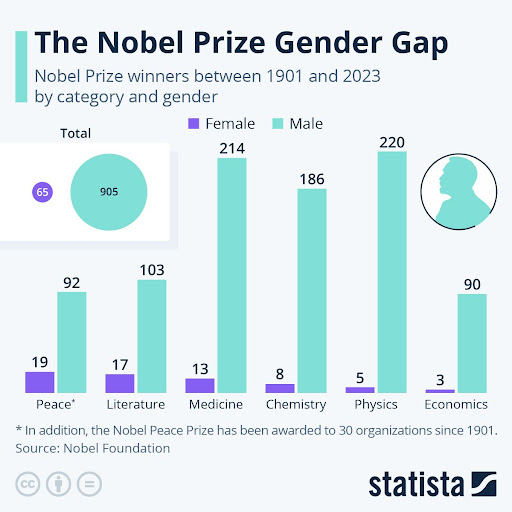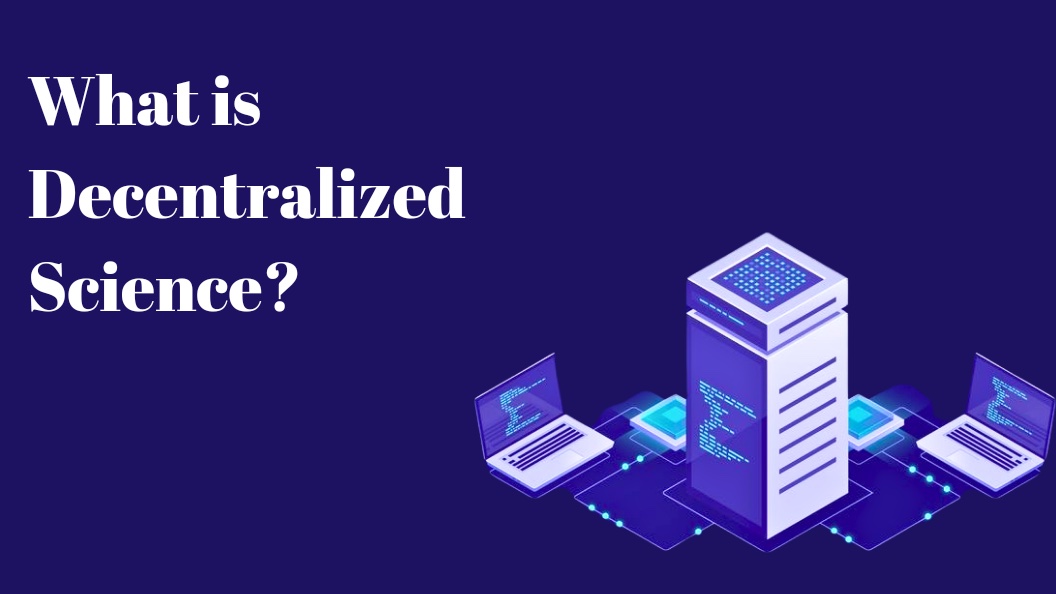Decentralized science (DeSci) is a relatively new movement of scientists that aims at providing transparency and open access to scientific research and its processes.
At the end of this article, you will understand how decentralized science relates to crypto. You will also learn about its use cases and get answers to some frequently asked questions about it.
What is Decentralized Science (DeSci) in Crypto?
Decentralized science (DeSci) in crypto means the use of blockchain technology to improve scientific research, innovation, collaboration and data by making it more open and decentralized through the use of Web3 technology. The idea of decentralized science was derived from decentralized finance (DeFi).
DeSci’s aim is to upgrade the field of science and make it better through the use of decentralized tools such as Non-Fungible Tokens (NFTs), Decentralized Autonomous Organizations (DAOs) and cryptocurrency tokens.
The reformation of the science field through blockchain technology includes the way in which scientific research is done, published and funded. It is an open alternative to the current scientific system which enables scientists to run experiments, do research, share scientific data and raise funding in an improved manner.
The concept of decentralized science (DeSci) creates an avenue where scientists are motivated to provide easy access to scientific information while receiving due credit for their work. It also aims to ensure that the process of scientific research is transparent and free from censorship.
Due to the fact that DeSci is a decentralized approach, it ensures that access to scientific tools and funding is open and not controlled by centralized authorities.
Features of a Decentralized Science (DeSci) System
The features of a decentralized science system are:
- Security: A decentralized science system should be highly secure and resistant to malicious attacks.
- Cost: Monetary costs in the DeSci system should be very low.
- Ecosystem: A DeSci system requires an ecosystem that supports decentralized application development.
At this point, it is worth remembering that the entire concept of DeSci is in its infancy, including the underlying infrastructure such as blockchains. However, the Ethereum network, amongst other has been leading the case for DeSci, aiming to accommodate the innovation.
Traditional Science Vs Decentralized Science
The concept of science generally involves two broad aspects, namely, research and innovation. In traditional science, though, there is a gap between these two aspects. The gap is known as “the valley of death”.
The valley of death is a phrase that is frequently used in traditional science. It is used to describe the important period between basic scientific research and its successful translation into beneficial innovation.
Traditional science, in this context, refers to the current scientific system, that is, science without the use of blockchain technology.
This means that, in traditional science, there is a gap between doing scientific research and translating the results into innovations that will provide solutions to real problems. Bridging this gap requires a more sustainable approach, one that is different from the regular.
This is where the idea behind decentralized science (DeSci) comes in. Decentralized science aims at bridging the valley of death by bringing in a more effective approach: blockchain technology.
How does decentralized science upgrade the field of science? Let us find out by examining some differences between decentralized science and traditional science.
- In traditional science, centralized authorities control the distribution of funds. Decentralized science (DeSci), on the other hand, ensures that the public determines the distribution of funds using funding mechanisms such as Decentralized Autonomous Organizations (DAOs). This also provides scientific researchers with increased financial opportunities.
- Unlike traditional science, decentralized science aims at rewarding scientists with tokens for sharing their research works.
- Unlike in traditional science, decentralized science ensures that funding decisions are transparent and not biased.
- With the use of Web3 technology, scientists can share laboratory services quickly unlike in traditional science.
- Decentralized science makes sure that all the processes of research are shared, whether they are successful or not. This is unlike traditional science where scientific researchers, most times, do not share information about research works that were unsuccessful.
- In decentralized science, blockchain technology promotes the transparency of scientific information. This allows people to easily access scientific data available to them. In traditional science, however, access to scientific information is censored.
DeSci Use Cases
Use cases of decentralized science (DeSci) include science publishing, funding, Intellectual Property (IP) ownership, data storage and access.
Science Publishing
DeSci creates an avenue to build a system where scientific papers and information can be published and accessed legitimately.
Funding
With the use of DAOs, decentralized science increases opportunities for scientists and researchers to secure funding for scientific projects.
Intellectual Property (IP) Ownership
Decentralized science allows researchers to claim ownership of their scientific articles and research papers as unique digital assets verifiable on the blockchain and even rewards them with Non-Fungible Tokens (NFTs).
Data Storage and Access
Scientific information can be accessed and stored securely using blockchain technology on DeSci. This allows for transparency and protects stored information from censorship.
Funding in Traditional Science
Traditional science faces challenges in acquiring funding. Here are some of the processes involved.
Applications for Grants
To get funds in traditional science, a scientific researcher needs to write grant applications that contain details of the research he needs the grant for. Sadly, sometimes, these applications are not approved, making the researcher unable to go on with the research.
Biased Interests
In order to secure funding, the results of a research may be tilted in favor of the sponsors’ interests, leading to biased and inaccurate research outcomes.
Lack of Incentives
In traditional science, scientists and researchers are not duly rewarded for some of their research works and science papers. Female scientists are affected even more, with data showing that only around 4% of Nobel Prizes for sciences has been awarded to women.

Decentralized science has the potential to solve this inequality, and bring more funding to scientists globally.
Decentralized Autonomous Organizations (DAOs)
Decentralized Autonomous Organizations (DAOs) are a wide variety of projects and systems developed to distribute funds and control processes. Ernst and Young estimates that there are around 13,000 DAOs holding more than $23 billion in assets.
There are some DAOs that are being used in decentralized science. Projects such as VitaDAO, ValleyDAO, LabDAO, AntidoteDAO, AthenaDAO and GenomesDAO are using blockchain technology to facilitate decentralized funding, enhance collaboration and improve access to scientific information.
- VitaDAO: VitaDAO collects funds for research that focuses on the longevity of healthy human life.
- ValleyDAO: This is a community of scientists and other people that focuses on synthetic biology that can be used to address climate change, food and energy production.
- LabDAO: LabDAO established decentralized laboratories to enhance research collaborations.
- AthenaDAO: This is a decentralized community that funds research that focuses on women’s health and conditions such as menopause, endometriosis, uterine fibroids and so on.
- GenomesDAO: The aim of GenomesDAO is to create the world’s largest genome database where research organizations and the public can securely store genomic data.
Frequently Asked Questions About DeSci
Here are answers to some frequently asked questions about decentralized science.
What is DeSci?
DeSci simply means decentralized science. It involves the use of blockchain technology, such as NFTs, DAOs and cryptocurrency tokens, to revolutionize or upgrade the science field.
Decentralized science aims at improving the way in which scientific research is done, published and funded by promoting transparency, collaboration and open accessibility.
What are the Benefits of DeSci?
Some benefits of decentralized science are increased financial opportunities, unlimited collaboration among scientists, secure storage of scientific information and provision of incentives for researchers.
- Increased Financial Opportunities
Decentralized science (DeSci) leverages blockchain technology to provide scientific researchers with advanced funding opportunities.
Decentralized Autonomous Organizations (DAOs) and crowdfunding platforms open up different ways for scientists to access funds rather than just depending on grants or centralized organizations.
- Unlimited Collaboration Among Scientists
DeSci promotes collaboration among scientists worldwide.
Through DAOs, scientific researchers can connect, collaborate and share knowledge with other researchers easily and freely without any distance barrier. This, in turn, leads to a stronger and more vibrant scientific community.
- Secure Storage of Scientific Information
Decentralized science uses blockchain technology to ensure that research findings are neither lost nor tampered with. This fosters data accuracy and security.
- Incentives for Researchers
Decentralized science (DeSci) protects the intellectual property rights of researchers and allows them to monetize their intellectual properties by rewarding them in the form of Non-Fungible Tokens (NFTs).
What Challenges Does DeSci Face?
Decentralized science faces certain challenges such as the cost of infrastructure and understanding the use of blockchain technology.
- Cost of Infrastructure
Decentralized science needs a sustainable ecosystem for it to run effectively. Securing funding for building this ecosystem may prove to be a challenge as traditional funding sources may not recognize it as a profitable project.
- Understanding the Use of Blockchain Technology
The use of blockchain technology is an integral part of decentralized science. However, some scientists may not understand the concept of blockchain technology or how it can improve the science field. This knowledge gap, if not properly addressed, may prove to be a real challenge for DeSci.
What is the Future of DeSci?
We cannot say, for sure, what the future of decentralized science is. However, DeSci has some good potential that can be looked into.
DeSci aims to upgrade the field of science by bridging the gap between research and innovation. It also aims to address important issues such as funding opportunities for researchers, transparency and collaboration.
Although decentralized science currently faces some challenges, the potential of this Web3 movement is undisputable.
